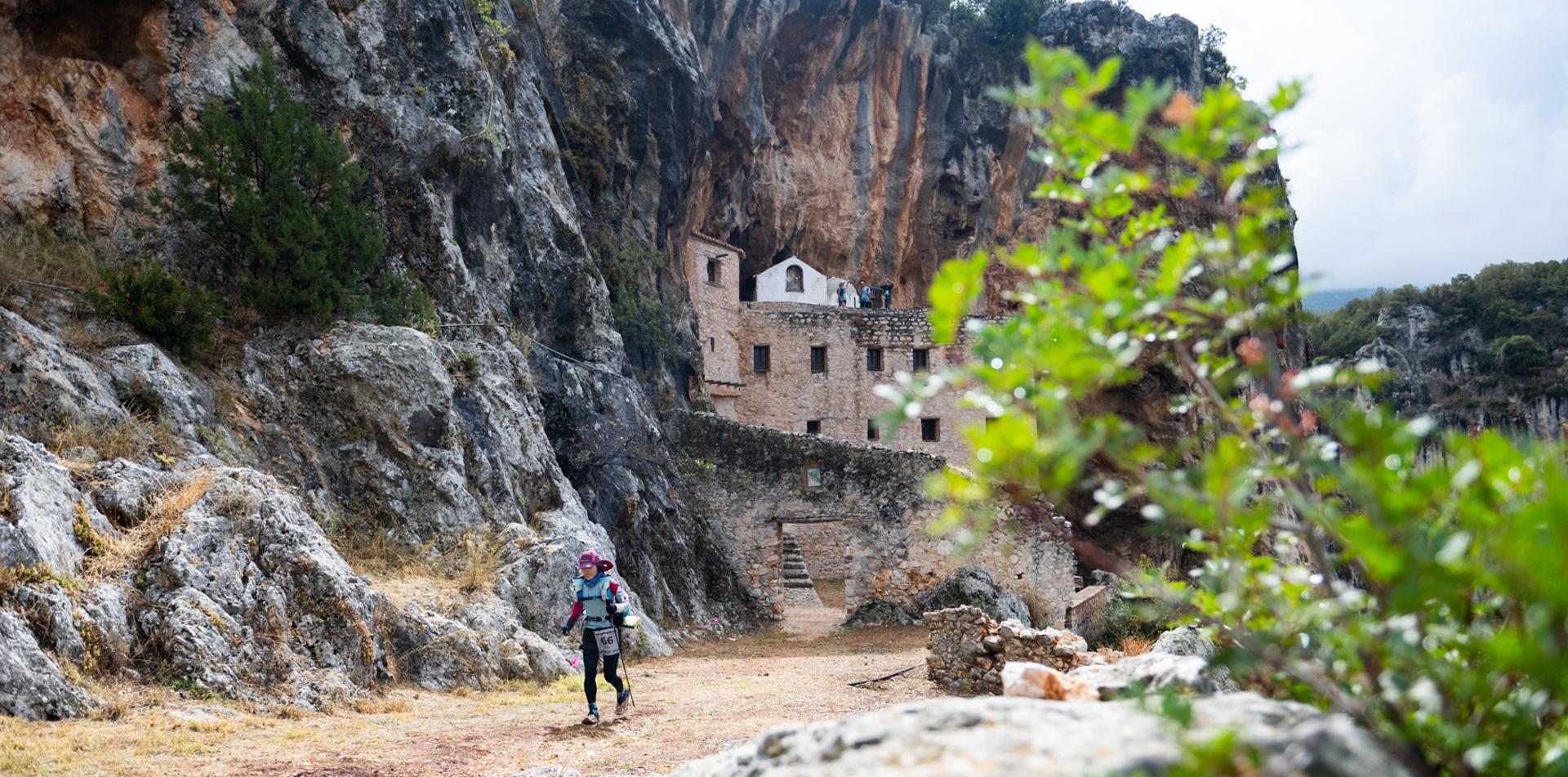RACE INFO

RACE INFO
RACINGTHEPLANET: GREECE 2025 LOCATION, WEATHER & CULTURE
The Peloponnese peninsula in Greece is a land of contrasts. It is home to rugged mountains, picturesque villages, ancient ruins, and stunning coastline. In 2025, RacingThePlanet will take runners on a six-stage journey through this remarkable region.
LOCATION
Marathon will be the Host Town for RacingThePlanet: Greece 2025. Marathon is a famous town in Greece which was the site for the Battle of Marathon in 490 BCE, in which the heavily outnumbered Athenian army defeated the Persians. Legend has it that Pheidippides, a Greek herald at the battle, was sent running from Marathon to Athens to announce the victory, which is how the marathon running race was conceived in modern times.
The Peloponnese peninsula will be the likely location for RacingThePlanet: Greece 2025. Some of the areas considered include the Mani Peninsula, with the narrow Koskaraka Gorge and Taygetus massif, the highest mountain range in the Peloponnese. The highest peak in the range is found on the summit of Profitus Ilias at 2,405 meter (7,890 feet) high. The mountains were sacred to the ancient Greeks, and they were home to a number of important sanctuaries, including the Sanctuary of Zeus on Mount Lykaion. The name Taygetus itself, believed to be named after the mythical nymph Taygete, is one of the oldest names recorded in Europe and appears in Homer’s epic, The Odyssey.
In addition to their cultural and religious significance, the mountains served the Spartans as a natural form of defense. Spanning 100km (62mi) from central Peloponnesus to Cape Matapan in the south, the slopes of Taygetus offered a formidable obstacle for any forces attempting to invade Sparta.
In the heart of the Peloponnese peninsula lies a region of rolling hills, olive groves, and vineyards. This region remains infrequently visited by tourists, despite its rich and ancient history of cultivating olives. Up to 60 percent of Greece’s land is covered with olive trees, a number totaling up to 150 million trees. Most of those trees can be found in the Peloponnese peninsula. The practice of growing olives is believed to have begun as far back as 3500 BC in ancient Greece, and has remained an uninterrupted agricultural staple, owing to the warm Mediterranean climate.
The Argolis region of the Peloponnese is situated between the Saronic gulf in the northeast and the Argolic gulf in the southeast. A prominent example of ancient Greece located in Argolis is Epidaurus, an ancient Greek sanctuary that was dedicated to the god Asclepius, the god of healing. Epidaurus is home to a number of well-preserved temples and other buildings, including the famous Theater of Epidaurus, a dramatic and near pristine 14,000 seat amphitheater.
Overall, the region of the Peloponnese peninsula remains a tapestry of diversity and rich history stretching back thousands of years. There is an air of timelessness and tradition that persists through its mountains, numerous ancient ruins, battle hewn valleys, and sparkling coastlines. Though some modern features such as railways and paved roads have appeared throughout the centuries, the influence of the ancients remains an indelible part of this incredible region of the world. These are just some of the incredible areas of the Peloponnese that you may traverse.
WEATHER
The Peloponnese region of Greece in September has mild weather with nighttime temperatures expected to be 18C (65F) and daytime temperatures around 29C (84C). Below is a temperature chart. There is a 78% chance of a perfect sunny day and a 22% chance of seeing some clouds, with on average 10mm of rainfall this month.
CULTURE
The culture of Greece has evolved over thousands of years, beginning in Minoan and later in Mycenaean Greece, continuing most notably into Classical Greece, while influencing the Roman Empire and its successor the Byzantine Empire. Other cultures and states such as the Frankish states, the Ottoman Empire, the Venetian Republic and Bavarian and Danish monarchies have also left their influence on modern Greek culture.
Greece's culture is deeply rooted in its ancient history. The influence of Classical Greece, with its advancements in philosphy, art, and politics, is still evident today. Sites like the Acropolis and the Temple of Hephaestus are enduring symbols of this legacy.
Greek Orthodox Christianity plays a significant role in the daily lives of many Greeks. Religious Festivals, such as Easter, are celebrated with great enthusiasm and are central to community life.
Greek cuisine is renowned for its delicious and healthy dishes. Staples include olive oil, fresh vegetables, seafood and grilled meats. Traditional dishes like moussaka, souvlaka, and baklava are enjoyed both locally and internationally.
Family is the heart of Greek society. Social gatherings often revolved around family meals and celebrations. The tradition of the volta, an evening stroll, is a cherished part of daily life in many towns and villages.
Music and dance are integral to Greek culture. Traditional music often features instruments like the bouzouki and is accompanied by dances such as the sirtaki and kalamatianos. These cultural expressions are a vibrant part of festivals and celebrations.
Greece has a rich tradition of art and literature, dating back to ancient times. Modern Greek literature and art continue to thrive, with many contemporary artists and writers drawing inspiration from their heritage. Greece is known for its numerous festivals and traditions. From the Carnival of Patras to local village festivals, these events are celebrated with music, dance, and traditional foods.







 Newsletter
Newsletter
 Online Store
Online Store
 Login
Login






.jpg)
.jpg)


.jpg)
.jpg)
.jpg)
.jpg)
